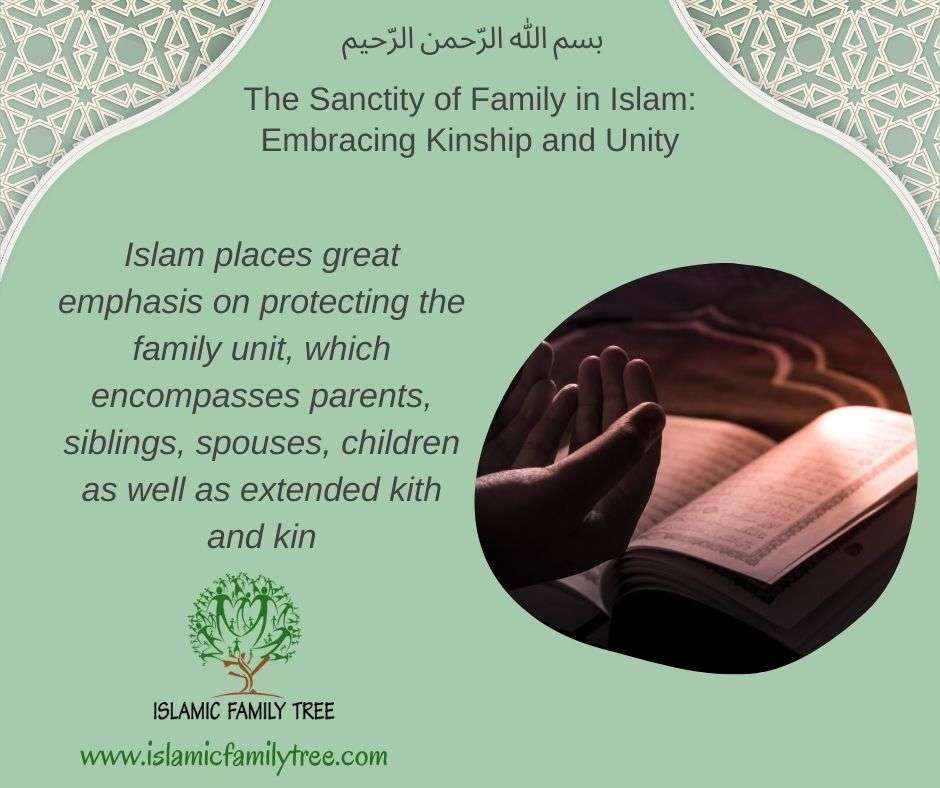
Islam places great emphasis on protecting the family unit, which encompasses not only parents, siblings, spouses, and children but also extended kith and kin. The family holds a central and revered position in Islamic teachings and society, and it is considered the cornerstone of a strong and harmonious community.
Respect for Parents: Islam teaches the utmost respect and obedience to parents. The Quran explicitly commands believers to be kind and dutiful to their parents, even if they are non-Muslims. This respect extends to grandparents and elderly relatives as well.
Rights of Spouses: Marriage in Islam is seen as a sacred contract, and the relationship between spouses is built on love, compassion, and mutual support. Husbands are expected to provide for their wives and treat them with kindness, while wives are encouraged to be obedient and loyal to their husbands.
Children’s Rights: The upbringing and education of children hold significant importance in Islam. Parents are responsible for providing their children with a proper Islamic education and moral guidance. The Prophet Muhammad emphasized the rights of children to be cared for, loved, and educated.
Siblings and Extended Family: The ties of blood and kinship are highly valued in Islam. Siblings are encouraged to maintain strong bonds, help each other, and resolve conflicts amicably. Extended family members, such as aunts, uncles, and cousins, are also considered part of the broader family unit and are to be treated with kindness and respect.
Support During Difficult Times: The Islamic community is expected to come together to support family members during times of need. This includes financial assistance, emotional support, and caregiving for the elderly and sick.
Inheritance Laws: Islam has detailed laws regarding inheritance to ensure that wealth is distributed fairly among family members. These laws aim to protect the financial stability of family members, especially widows and orphans.
Family as a Source of Blessings: Islamic teachings emphasize that family life is a source of blessings and a means of drawing closer to God. The love and care that family members show to one another are considered acts of worship.
Marriage as Half of Faith: The Prophet Muhammad is reported to have said that marriage completes half of a believer’s faith. This underscores the significance of a strong and stable family life in the eyes of Islam.
In summary, Islam places great emphasis on safeguarding and nurturing the family unit, recognizing its pivotal role in the moral, social, and spiritual development of individuals and society. These teachings foster love, harmony, and a sense of responsibility within the family, ultimately contributing to a more compassionate and just society.


